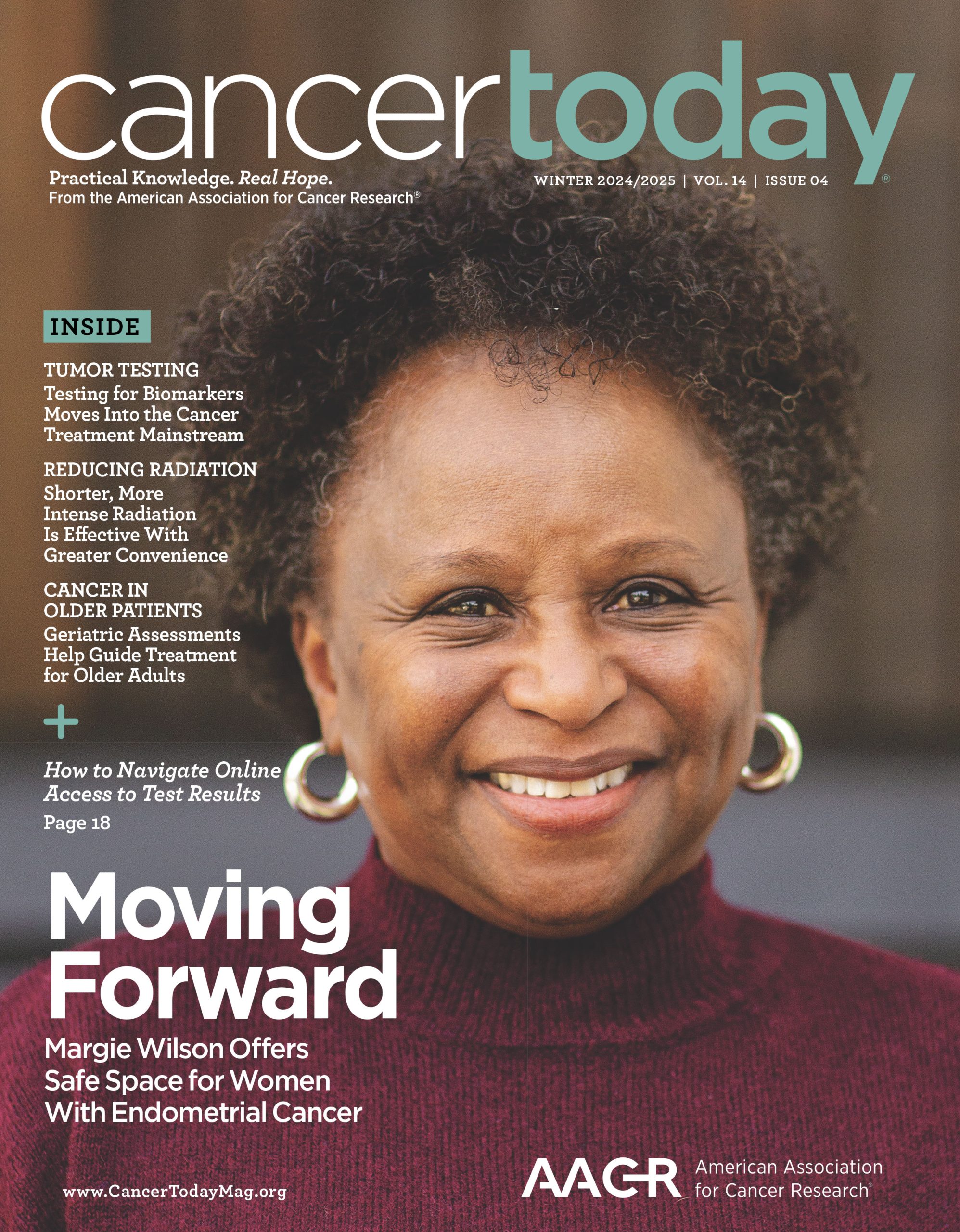Every week, the editors of Cancer Today magazine bring you the top news for cancer patients from around the internet. For more news and features, read our summer issue, available now.
Acupuncture Reduces Hot Flashes in Women Receiving Endocrine Therapy
Acupuncture can help alleviate hot flashes and improve quality of life in women who are undergoing endocrine therapy for breast cancer, according to a new study published June 24 in Cancer. The study included 158 women with stage 0 to stage III hormone receptor-positive breast cancer who completed chemotherapy or radiation therapy. All the women had been taking endocrine therapy and experiencing persistent hot flashes for at least four weeks. The study divided patients into two groups—one group received acupuncture two times a week for 10 weeks followed by 10 weeks of observation, while the other received acupuncture once a week after waiting 10 weeks. Participants reported reduced hot flashes and increased quality of life—with the greatest benefit for those who started acupuncture sooner. “Unlike many medications that target only single symptoms, acupuncture has demonstrated the ability to address multiple symptoms simultaneously,” said Weidong Lu, lead oncology acupuncturist at Dana-Farber Cancer Institute’s Leonard P. Zakim Center for Integrative Therapies and Healthy Living in Boston, in a Healio article. “It improved not just hot flashes, but also a group of hormonal symptoms and overall quality of life. This holistic approach is particularly valuable for managing the complex side-effect profile of endocrine therapy.”
Chemo Before and After Surgery Keeps Pancreatic Cancer at Bay
Pancreatic cancer is a lethal disease. Patients who are candidates for surgery typically see their cancer return even when the operation appears to remove all signs of disease. A study published June 20 in the JAMA Oncology suggests that chemotherapy before and after surgery may provide more lasting remission for some patients than chemotherapy given only after surgery, the current standard for treatment. The study results, reported in U.S. News & World Report enrolled 46 patients, 37 of whom were able to complete the treatment. Researchers measured success for the treatment as having at least 50% of patients live 12 months without their cancer progressing. Twenty-seven of the patients underwent successful tumor removal. The team reported that 67% of those patients experienced at least 12 months of progression-free survival and 59% lived for at least two years following the dual-chemo approach. Michael Cecchini, an oncologist at the Center for Gastrointestinal Cancers at Smilow Cancer Hospital and Yale Cancer Center in New Haven, Connecticut, led the clinical trial and noted that this was a small, early trial. “I think even though there have been changes in standard of care for patients with this aggressive pancreatic cancer type, we have here very promising data to justify a larger study,” Cecchini said.
Gen Xers Face Increased Cancer Risk
Gen Xers—people in the U.S. born between 1965 and 1980—are more likely to enter their golden years with a cancer diagnosis than the preceding generation, a new National Cancer Institute study found. If current cancer trends continue, the paper published this month in JAMA Network Open concludes that cancer incidence rates will remain high for decades. The cause of the rise in cancer rates is as yet unknown, according to a June 20 NPR article that listed potential contributing factors, including earlier detection of cancers with improved screening methods, environmental factors and sedentary lifestyles. The new study projected cancer incidences using data from 3.8 million people diagnosed with cancer in the U.S. from 1992 to 2018 to compare cancer rates for members of Generation X and Baby Boomers, who were born between 1946 and 1964. The research used modeling that shows that when Gen Xers turn 60 years old (starting in 2025), they are more likely to be diagnosed with invasive cancer than Boomers were at age 60.
Cancer Today magazine is free to cancer patients, survivors and caregivers who live in the U.S. Subscribe here to receive four issues per year.





